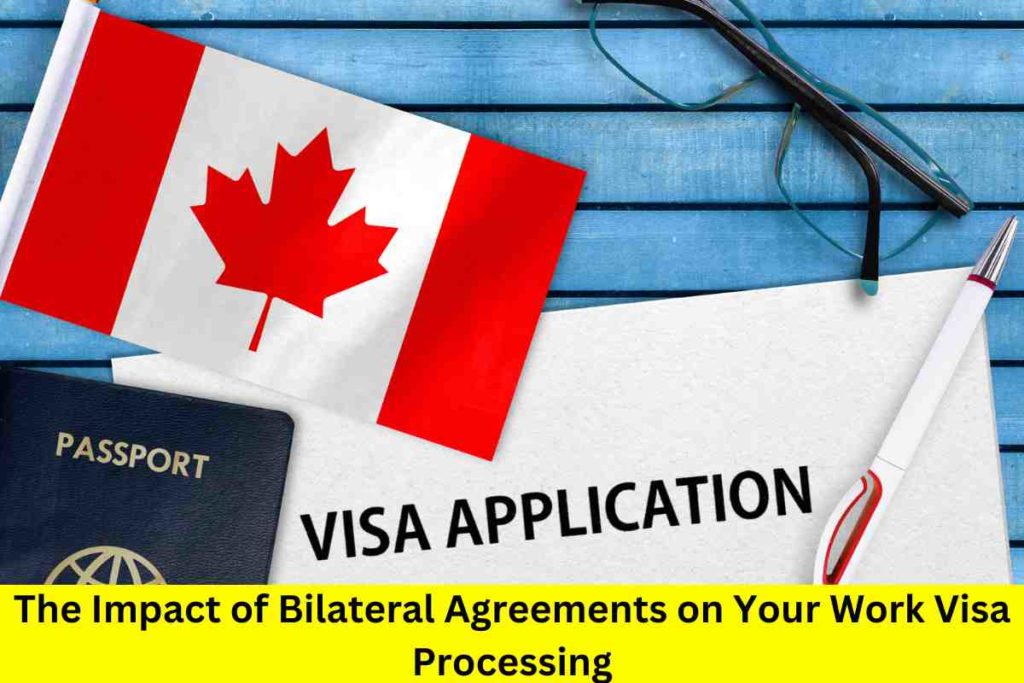The Impact of Bilateral Agreements on Your Work Visa Processing:- Bilateral agreements between countries can significantly impact the processing of work visas. These agreements are designed to foster relations, enhance trade, and facilitate the movement of skilled professionals between the involved nations. Here’s a detailed look at how bilateral agreements may affect your work visa processing:
Expedited Processing
Bilateral agreements often include provisions for expedited visa processing for nationals of the involved countries. This could mean shorter processing times and fewer administrative hurdles for individuals applying for a work visa.
Increased Quotas
Some bilateral agreements specify increased quotas for work visas, allowing more individuals from the involved countries to work abroad. This could enhance your chances of securing a work visa.
Recognition of Qualifications
Bilateral agreements may include mutual recognition of qualifications, making it easier for professionals to have their credentials recognized in the host country. This is a significant advantage, as it simplifies the visa application process and increases the chances of employment.
Reduced Documentation
These agreements may reduce the amount of documentation required for visa processing, thus simplifying the application process. Reduced documentation can make the visa application process less daunting and more streamlined.
Special Visa Categories
Bilateral agreements might create special visa categories for nationals of the involved countries. These special categories can provide additional pathways for individuals to secure a work visa.
Access to Certain Occupations
Some bilateral agreements allow individuals access to certain occupations or sectors that might otherwise be restricted. This opens up more job opportunities for individuals applying for a work visa.
Enhanced Support Services
Countries with bilateral agreements may offer enhanced support services to ease the visa application process. This could include dedicated visa processing centres, helplines, and informational websites to guide applicants through the process.
Navigating Bilateral Agreements: A Strategic Approach
Having a strategic approach towards understanding and leveraging bilateral agreements can be a game-changer in your work visa processing journey. Here’s how you can navigate these agreements to your advantage:
Research Thoroughly
Carry out thorough research to understand the bilateral agreements between your home country and the country you wish to work in. Look for agreements that pertain to immigration, work visas, and professional qualifications recognition.
Consult with Immigration Professionals
Engage with immigration consultants who are well-versed with the bilateral agreements and their implications on work visa processing. Their expertise can provide invaluable insights and guide you through leveraging these agreements.
Check Eligibility Criteria
Review the eligibility criteria stipulated in the agreements. Ensure you meet the criteria to take advantage of the benefits offered by the bilateral agreements.
Prepare Documentation Meticulously
Prepare your documentation meticulously as per the guidelines provided in the bilateral agreements. Ensure all documents are accurate, up-to-date, and duly certified where necessary.
Explore Special Visa Categories
If there are special visa categories under the bilateral agreements, explore them to see if they align with your professional goals. These special categories might offer a faster or easier pathway to securing a work visa.
Stay Informed
Stay informed about any updates or changes in the bilateral agreements, as these may affect your work visa application. Subscribe to official immigration newsletters or follow relevant authorities on social media for updates.
Plan Your Application Timeline
Plan your application timeline keeping in mind the expedited processing times or other benefits offered by the bilateral agreements. A well-planned timeline can ensure a smooth visa processing experience.
